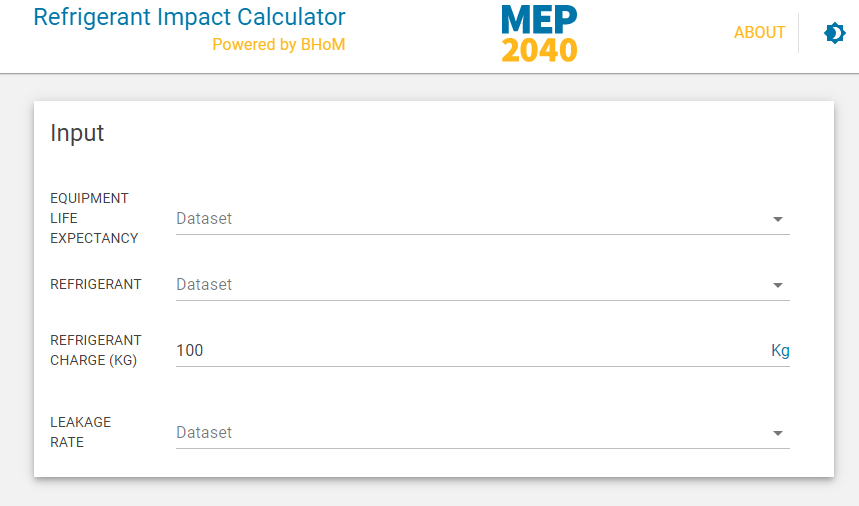Data, Analysis and Reporting
-
Intro slides
The initial MEP 2040 Quarterly Forum was held March 18, 2022. The opening presentation focused on how to understand, calculate, compare, and reduce the carbon footprint of MEP systems.
-
Refrigerant Impact Calculator
The purpose of this tool is to bring awareness to the impact that refrigerants can have on the environment. The total volume of refrigerant specified is not harmful – only the amount that escapes to atmosphere, hence the calculations of leakage rates when installed, on an annual basis and loss at end of life. Refrigerants like R-410A have an impact of around 2088 kgCO2e/kg. Considering the vast amount of loss for some equipment, the environmental impacts can quickly add up to a significant portion of the embodied carbon for an entire new building.
-

TM65 Embodied carbon in building services: calculation methodology (2021)
Embodied carbon in building services: A calculation methodology outlines the need for assessments of embodied carbon of products linked to mechanical, electrical and public health (MEP) systems, to increase knowledge and facilitate research in whole life carbon in MEP systems. In this document, embodied carbon is understood as the greenhouse gas emissions (GHG) associated with the making of a product, its installation, its maintenance, repair, replacement, and then its end of life. It covers the whole life cycle, excluding operational aspects and the potential recovery, reuse or recycling of materials. The embodied carbon associated with MEP design can be significant in a building lifetime due to the materials that MEP equipment are made of and high replacement rates.
Resources to support the Commitment are crowd-sourced. Please submit resources such as company reports, company plans, case studies, research papers, or tools you think may be helpful to others. The MEP 2040 website will link to external publicly available locations such as web pages, and storage places such as Google Drive, Dropbox, or OneDrive.


